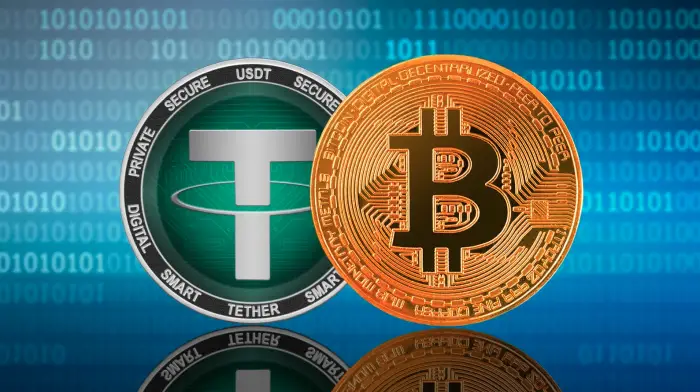El Salvador made headlines in 2021 by adopting Bitcoin as legal tender, positioning itself as a pioneer in cryptocurrency adoption. However, the International Monetary Fund (IMF) has expressed significant concerns regarding this move. The IMF’s recent demands urge El Salvador to reconsider its Bitcoin strategy, highlighting potential risks to the nation’s financial stability.
Table of Contents
- Introduction
- Key Takeaways
- El Salvador’s Bitcoin Adoption
- IMF’s Concerns and Recommendations
- El Salvador’s Response to IMF’s Stance
- Global Implications of IMF’s Position
- Conclusion
- FAQs
Key Takeaways
- The IMF’s stance on El Salvador’s Bitcoin adoption may influence global perspectives on cryptocurrency integration and regulation.
- El Salvador’s pioneering Bitcoin adoption has faced scrutiny from the IMF due to concerns over financial stability, consumer protection, and fiscal transparency.
- In response, El Salvador amended its Bitcoin Law, making its acceptance voluntary and prohibiting its use for tax payments, to align with IMF recommendations.
El Salvador’s Bitcoin Adoption

In September 2021, under President Nayib Bukele’s leadership, El Salvador became the first country to adopt Bitcoin as legal tender. This initiative aimed to boost financial inclusion, attract foreign investment, and reduce remittance costs. The government introduced the “Chivo Wallet,” a digital wallet for citizens, and established a $150 million trust fund to facilitate Bitcoin transactions.
IMF’s Concerns and Recommendations
The IMF has consistently voiced apprehensions about El Salvador’s Bitcoin adoption, citing several key issues:
Financial Stability Risks
Advertisement
Join Gemini today and get $15 in free Bitcoin when you trade with an easy, secure and U.S.-regulated crypto exchange you can trust. Offer valid for U.S. residents only; crypto investments are risky.
The IMF warns that the high volatility of Bitcoin could destabilize El Salvador’s economy. Sharp price fluctuations may lead to significant losses for consumers and the government, potentially undermining economic growth. The IMF emphasizes the need for robust financial safeguards to mitigate these risks.
Consumer Protection Issues
The IMF highlights concerns about inadequate consumer protection mechanisms in El Salvador’s Bitcoin framework. The decentralized nature of cryptocurrencies can expose users to fraud, cyberattacks, and loss of funds without recourse. The IMF recommends implementing comprehensive regulatory measures to protect consumers.
Fiscal Transparency Challenges
The IMF points out that the opacity surrounding Bitcoin transactions could hinder fiscal transparency. This lack of clarity may facilitate money laundering and tax evasion, posing challenges to governance and public trust. The IMF advises enhancing transparency and oversight in cryptocurrency transactions.
El Salvador’s Response to IMF’s Stance
In light of the IMF’s concerns, El Salvador has made several policy adjustments:
Policy Adjustments
To secure a $1.4 billion loan from the IMF, El Salvador agreed to amend its Bitcoin Law. The reforms include removing Bitcoin’s status as mandatory legal tender, making its acceptance by merchants voluntary, and prohibiting its use for tax payments. These changes aim to address the IMF’s recommendations while maintaining the country’s commitment to innovation.
Public Sector Bitcoin Accumulation
The IMF has specifically requested that El Salvador’s public sector refrain from accumulating Bitcoin. This measure seeks to limit the government’s exposure to cryptocurrency-related risks and ensure fiscal responsibility. The technical memorandum of understanding between the IMF and El Salvador stipulates “no voluntary accumulation of BTC by the public sector.”
Global Implications of IMF’s Position
The IMF’s stance on El Salvador’s Bitcoin adoption carries broader implications:
Impact on Other Nations
The IMF’s position may influence other countries considering cryptocurrency adoption. Nations may reassess the benefits and risks of integrating digital currencies into their economies, considering the potential challenges highlighted by the IMF.
Cryptocurrency Market Reactions
The IMF’s recommendations to El Salvador could affect investor sentiment in the cryptocurrency market. Increased regulatory scrutiny may lead to short-term volatility, prompting investors to reevaluate their positions.
Conclusion
El Salvador’s ambitious Bitcoin experiment has attracted global attention and scrutiny. The IMF’s concerns have led to significant policy adjustments in the country, reflecting the complex balance between innovation and economic stability. As nations worldwide observe El Salvador’s approach, the long-term impact of these changes remains uncertain. While some view Bitcoin adoption as a path to financial empowerment, others see it as a risky move that could destabilize the economy.
The IMF’s influence on El Salvador’s policy decisions highlights the ongoing debate between centralized financial institutions and decentralized digital currencies. As global interest in cryptocurrency grows, the world will continue to watch how El Salvador navigates this unprecedented financial experiment.
FAQs
Why did El Salvador adopt Bitcoin as legal tender?
El Salvador aimed to enhance financial inclusion, attract foreign investment, and reduce remittance costs by adopting Bitcoin as legal tender.
What are the IMF’s main concerns regarding Bitcoin adoption in El Salvador?
The IMF’s concerns include potential financial instability due to Bitcoin’s volatility, inadequate consumer protection mechanisms, and challenges to fiscal transparency.
How has El Salvador responded to the IMF’s recommendations?
El Salvador amended its Bitcoin Law to make Bitcoin acceptance voluntary, prohibit its use for tax payments, and limit public sector Bitcoin accumulation, aligning with IMF recommendations.
What are the global implications of the IMF’s stance on El Salvador’s Bitcoin adoption?
The IMF’s position may prompt other countries to reassess cryptocurrency adoption strategies and influence investor sentiment in the global cryptocurrency market.




